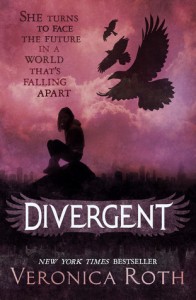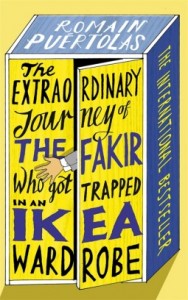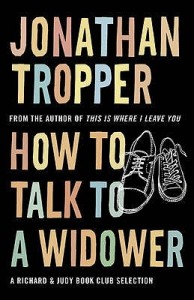 Title: Skinjob (Goodreads)
Title: Skinjob (Goodreads)
Author: Bruce McCabe
Published: Bantam Press, 2014
Pages: 384
Genres: Thriller
My Copy: ARC from Publisher
Buy: Amazon, Book Depository (or visit your local Indie bookstore)
Bruce McCabe joins a growing list of authors finding success from self-publishing his novel. I know I take a very cynical view on self-published books; I tend to treat a publishing house as the filter to sift through the slush piles and pulling out the best it has to offer. That isn’t to say there isn’t anything good coming from the self-publishing world but in my experience the pimping of books and desperation makes it hard to find the ones I’d like to read. My policy is to ignore the world of self-publishing, this probably isn’t the best way to go about it but it works for me.
Every now and then a self-published novel gets picked up by a publishing house; I’m thinking Hugh Howey, Andy Weir, and dare I say it, E.L. James. Bruce McCabe is the next self-published author to enjoy similar success, his debut novel Skinjob has been published by a Random House imprint Bantam Press. In the not-so-distant future sexdolls (or if you prefer, sexbots) will become a reality, allowing and even encouraging people to act out their dark and disturbing sexual fantasies; this is the world of Skinjob.
I want to diverse from the story line of Skinjob for a moment to look at the theme McCabe is trying to explore. The sex industry is often depicted as a dark and shady place and the invention of sexdolls is obviously going to be a difficult concept; the politics and ethical challenges are explored within the novel. What I find problematic about the use of sexdolls is this idea that using a doll to live out a dark, disturbing or violent fantasy isn’t going to be healthy. I would be concerned with the psychological damage they could cause of themselves and others around them, to assume the use of a sexdoll isn’t hurting others would be a naïve approach to the issue. There is also a very ethical issue to consider; making sexdolls in all shapes and sizes seems indicates the very real possibility of childlike sex dolls.
I enjoy how Bruce McCabe takes a crack at the thriller genre, using the tropes you expect from a novel like this to explore these ideas. While looking at the growing sex industry I was most impressed with how McCabe allowed the thriller genre to work with him in this exploration. I was interested in the approach he took by allowing militant religious and feminist groups blow up dollhouses (an obvious nod to Joss Whedon) full of sexdolls. This approach meant we have a violent act where real people are not the target. This allows the reader to explore all sides of the issue without forcing them to show unwanted sympathy. The reader can then look at issue of sexual politics within the book and society. The only thing that will get in the way of exploring the issue will come down to the readers and their preconceived notions.
Skinjob is a very issue heavy novel, if you want a straight thriller then this book is not for you. In fact I was less interested in the plot and characters than I was the issues being explored. All the characters felt very two dimensional and unmemorable, even the plot could have used a lot more work but I think this works in the books favour. In the end I was left not really remembering much of the plot and people with the novel but I was still thinking about the themes.
Sexual politics is a complicated and difficult subject; Bruce McCabe’s Skinjob did a great job exploring the topic. While it doesn’t cover everything, it will leave the reader pondering the issues; I’m very glad I picked up this book and hope it has as much of an impact on other readers as it did for me. This is a debut novel and I can’t help but feel excited at what McCabe does next; I hope he continues to explore hard-hitting themes in unique and interesting ways.

 Title: The Fictional Woman (
Title: The Fictional Woman ( Title: Provenance (
Title: Provenance ( Title: Cop Town (
Title: Cop Town ( Title: Divergent (
Title: Divergent ( Title: Foreign Soil (
Title: Foreign Soil ( Title: The Extraordinary Journey of the Fakir Who Got Trapped in an Ikea Wardrobe (
Title: The Extraordinary Journey of the Fakir Who Got Trapped in an Ikea Wardrobe ( Title: The Silent Wife (
Title: The Silent Wife ( Title: The Sex Lives of Siamese Twins (
Title: The Sex Lives of Siamese Twins ( Title: How to Talk to a Widower (
Title: How to Talk to a Widower (